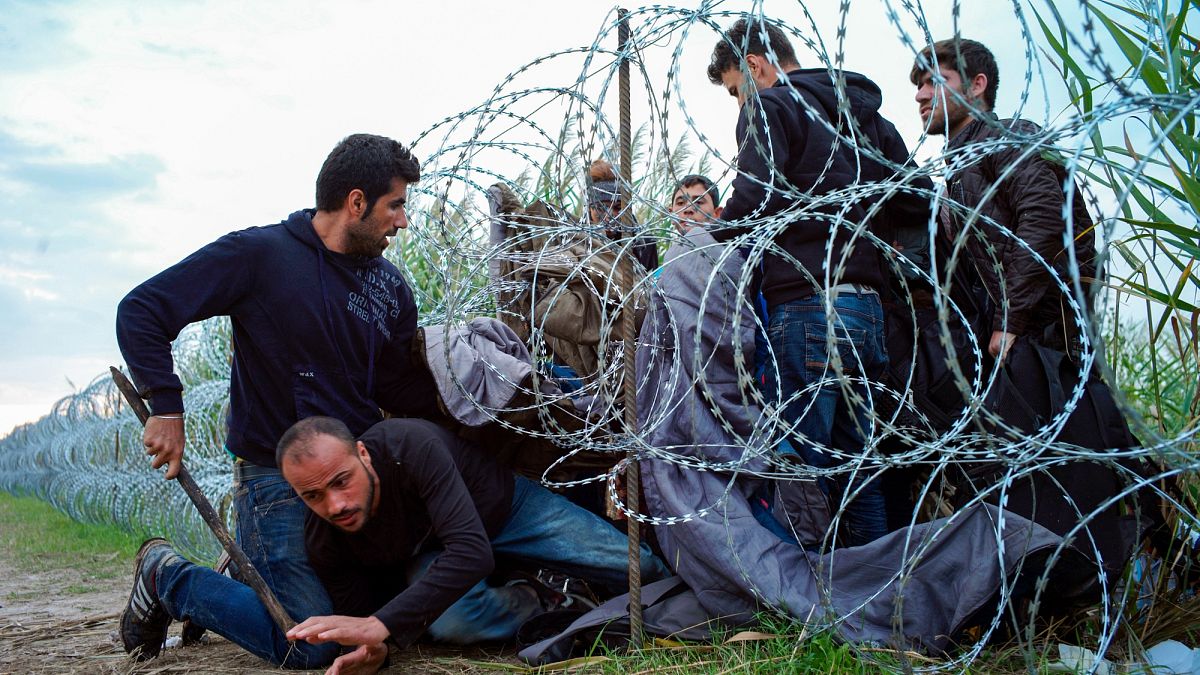A row erupted in Germany’s Bundestag on Thursday over the new European asylum system CEAS.
Interior Minister Alexander Dobrindt wants tougher measures to control illegal migration. One topic on the agenda concerns the deportation of migrants to centres in third countries.
“Balancing humanity and order,” that is Dobrindt’s guiding principle. In other words: not all burdens should fall on the shoulders of just one state, but they must be equally distributed across Europe.
Up to now, the Dublin Regulation was meant to ensure fair distribution. Under its rules, refugees must apply for asylum in the first EU country they enter.
In practice, however, the system did not always function as intended. Deadlines have been missed, member states have not fully cooperated, and migrants bypassed the procedures altogether. The result has been secondary migration and an overburdened system.
Dobrindt: No right to a country of choice for the asylum procedure
There is a right to an asylum procedure, but no right to a country of choice for the asylum procedure in Europe, Dobrindt believes, proposing the deportation of migrants who have committed criminal offences to Afghanistan, as well as establishing secondary centres and return hubs in third countries.
“We are making concrete progress on this,” Alexander Throm, the CDU/CSU’s domestic policy spokesperson, said to Euronews.
In addition to repatriation centres, Throm is calling for the creation of new detention criteria to make deportations “more feasible”.
“These are people who have come to Europe illegally and have no right to protection, no right to stay here,” Throm said. “They should be returned to their home country or, if this is not possible, to another safe third country.”
A ‘great idea’ but will it fail due to implementation?
AfD’s Bernd Baumann considers the idea a fundamentally good one, but has questioned the SPD’s ability to implement it
Speaking on repatriation centres, Baumann told Euronews that “it’s a great idea, and it comes from us. We’ve been doing it for years.”
“But anyone who wants to implement this cannot form a coalition with the SPD,” Baumann said, adding that “it won’t work with the EU either.”
Baumann believes that implementation can only succeed with national policies.
“The CEAS is anything but effective, because anyone can continue to come in across European borders. Illegal migration would not be stopped, only redistributed because of the ‘compulsory quotas’,” he told Euronews.
Can human rights be safeguarded?
Green Party MP Claudia Roth said the concept runs counter to the principle of asylum enshrined in Germany’s constitution.
“This permanent reduction to criminalisation of people on the run is really wrong,” Roth told Euronews.
Roth also emphasised Germany’s historical responsibility, “Nobody leaves their home country without a reason,” she said.
Left Party MP Clara Bünger pointed out that third countries are not guaranteed to be safe.
“The new CEAS reform will ensure that hardly any people arriving in the EU, in Germany, will receive protection here,” Bünger warned. “In the future, the vast majority of people will be sent to detention centres and then shipped to third countries that are not safe.”
The Left Party MP expressed concerns regarding human rights “Every human being has human rights, fundamental rights, and these are being taken away from them,” she said, “They are being moved, put into some kind of camp, and the procedures are being increasingly undermined, and the right to asylum is unrecognisable; it effectively no longer exists”.
Meanwhile, SPD remains divided.
“There are many points in the CEAS that point in the right direction, Hakan Demir, SPD MP, told Euronews. However, he is also concerned about potential human rights violations, particularly regarding restrictions on movement in secondary facilities and return centres in third countries.
In principle, repatriation centres are legally possible, says the SPD MEP. “But whenever I ask: ‘Name me a country that makes this possible now and where the legal conditions are right’, I never get an answer,” Demir said.
In fact, there have already been unsuccesful attempts in the past. Not because of the concept itself, but due to its surrounding conditions.
Italy, for instance, sought to host migrants in asylum centres in Albania, but the plan met legal resistance because the facilities were effectively detention centres. An Italian court later ruled the project as unlawful. However, granting freedom of movement in Albania would have allowed rejected asylum seekers to travel back to the EU via Serbia, rendering the plan ineffective.
The UK’s attempt to deport migrants to Rwanda also failed. In this case too, it was not because of the idea of return centres itself. The original plan involved outsourcing asylum procedures directly to the third country, but British courts rejected this approach.
The Conservative Party then proposed handling asylum procedures within the UK instead, but the plan never materialized after Labour blocked it.
The Netherlands, however, has taken a more pragmatic path. The Dutch government recently signed a memorandum of understanding with Uganda to establish a return centre for rejected asylum seekers. Unlike detention facilities, this would serve as an accommodation centre. The pilot project is now moving toward final approval and legal clarification in the coming months.

